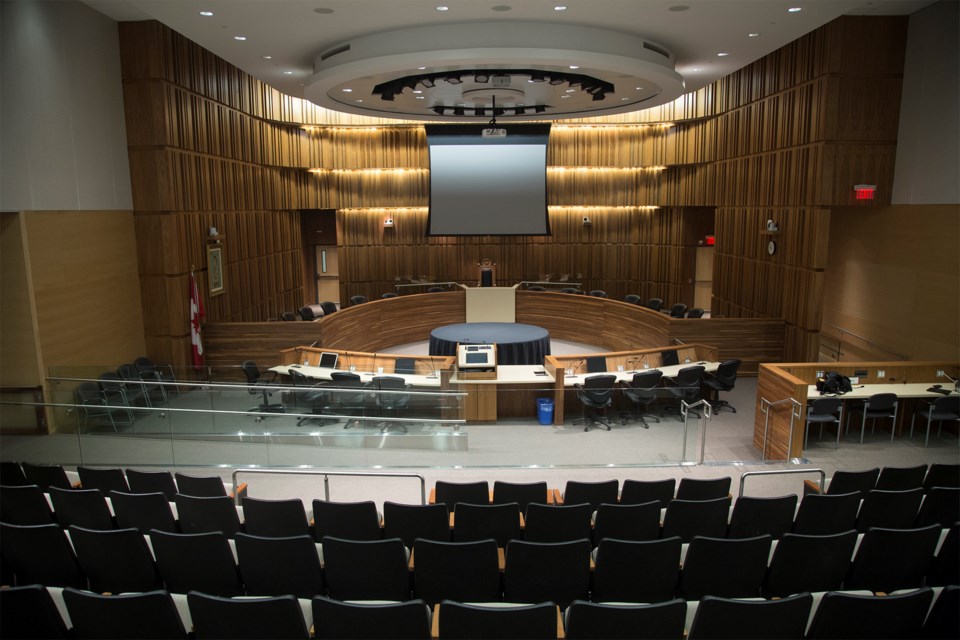If the public had its way, city council would look essentially the same as it does now, but with full-time councillors.
That’s the findings of an online survey with participation that “significantly exceeded expectations," states a report from the consulting team.
A team of consultants from Watson & Associates Economists Ltd., in conjunction with ICA Associates Inc. and Drs. David Siegel and Robert J. Williams, was hired in January to launch a public consultation process regarding the potential for change to council's composition. That process ultimately involved an online survey that ran for three weeks – a series of public meetings were planned but prevented by the pandemic – as well as a virtual town hall meeting on Aug. 25.
There were also 16 hours of dedicated call-in times to handle questions from and provide information to residents.
“City staff pulled out all the stops to promote civic engagement by reaching out to their most comprehensive and up-to-date list of over 200 community organizations and encouraging them to reach their own constituencies, and by providing reminders and updates to councillors, advertising, promotion on the city’s social media accounts, and large signs placed strategically around the city,” explains the consultants report.
As a result of the online survey, input was collected from 670 city residents, which “significantly exceeded expectations” of about 300 participants. They were asked to comment whether the ward system should be kept, the number of councillors for each ward, whether the position of councillor should be part-time or full-time, and the overall size of council.
Two thirds of respondents agreed with electing councillors through a ward system, as is done now.
Comments provided in support included:
- “Guelph is (still) a city of neighbourhoods”
- “at-large structures can create a system where a geographically small area can have a disproportionate voice on council, and could lead to neglect in other areas”
- “easier to get rid of the non-performers.”
About 11 per cent favour using an at-large system, meaning all councillors can be elected from any part of the city.
Coming in at 20.6 per cent, the second-favourite option is a mix of those two systems.
In terms of how many councillors should be elected from each ward, more than half of respondents, 52.7 per cent, opted for “greater than one,” while 34.6 per cent believe one is enough.
Respondents said going with “greater than one” would address concerns about ward representation during illness and holidays and having a councillor who is “unresponsive to citizens’ needs," as well as allow for more diverse opinions.
When it comes to whether councillors should be part-time or full-time, slightly less than half (48.8 per cent) believe it’s the latter. The part-time option received 39.6 per cent support, with the rest of respondents indicating they are “not sure” or it “doesn’t matter.”
As for the total size of council, 49.1 per cent feel it should remain as it is now, with 13 voting members.
“The comments of those who endorsed maintaining a twelve-member council can be grouped around three themes: the size is consistent with other similar municipalities, a larger council would hinder good decision-making, and what might be called the ‘Goldilocks’ outlook (‘not too large, not too small, just about right’),” consultants explain.
Shrinking council received the endorsement of 25.2 per cent and increasing its size was supported by 17 per cent.
